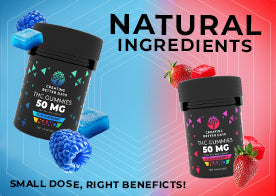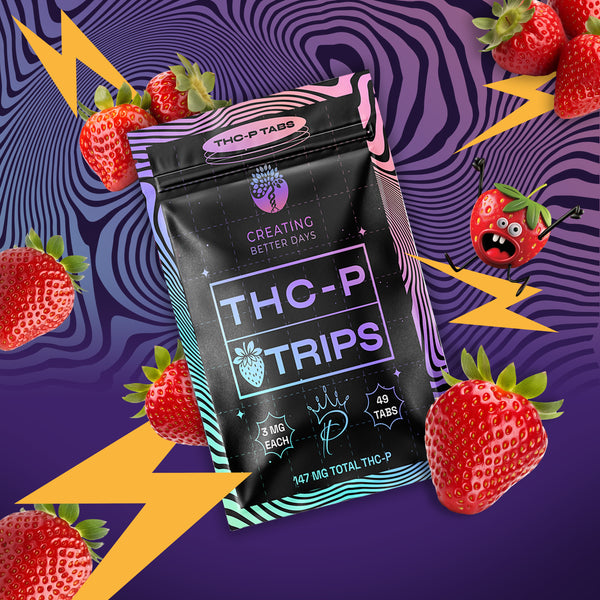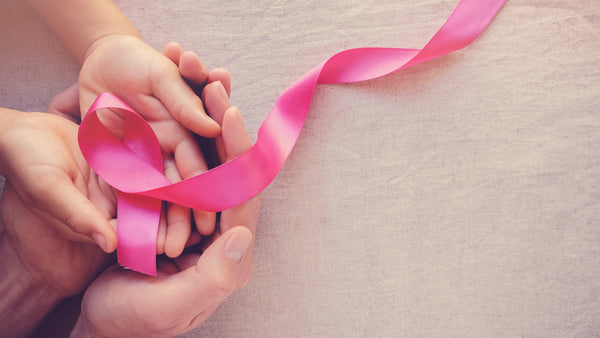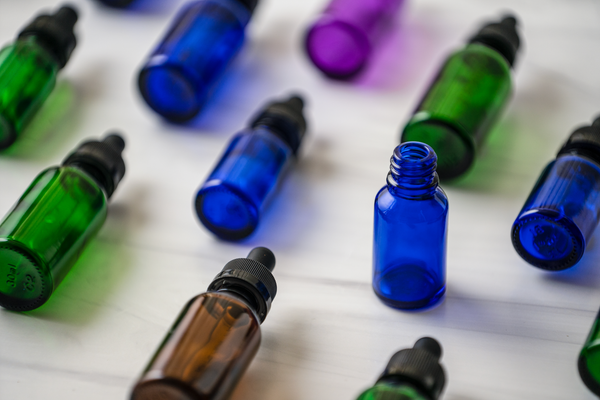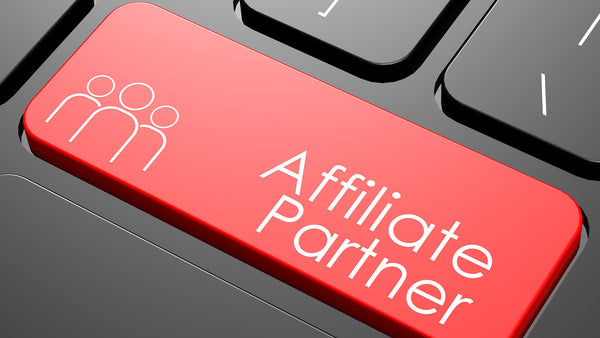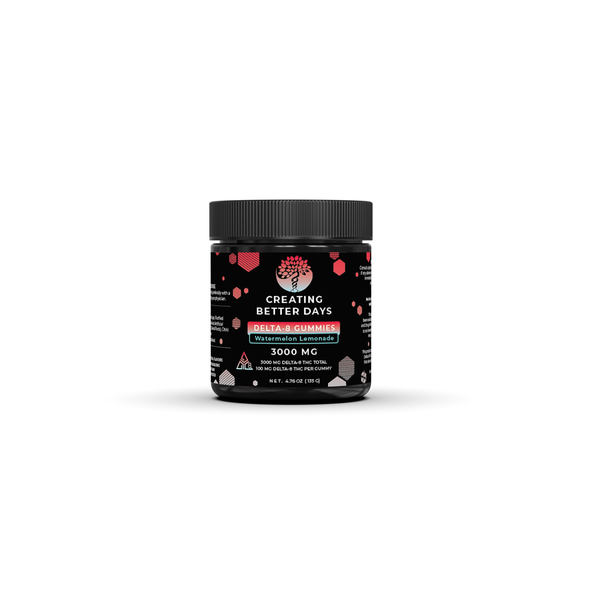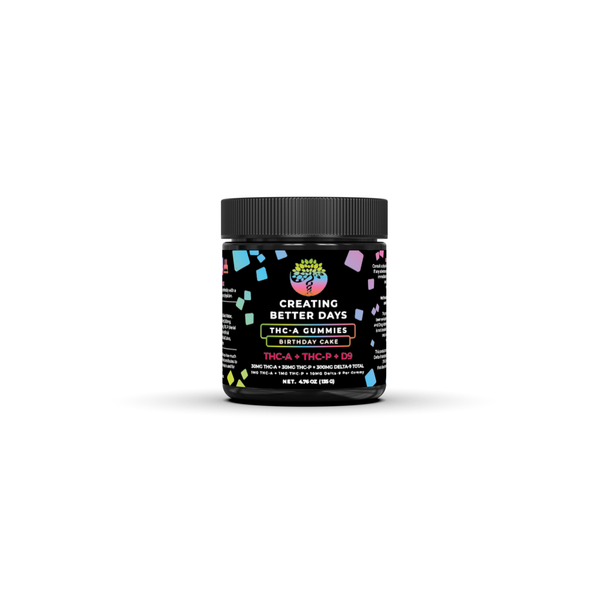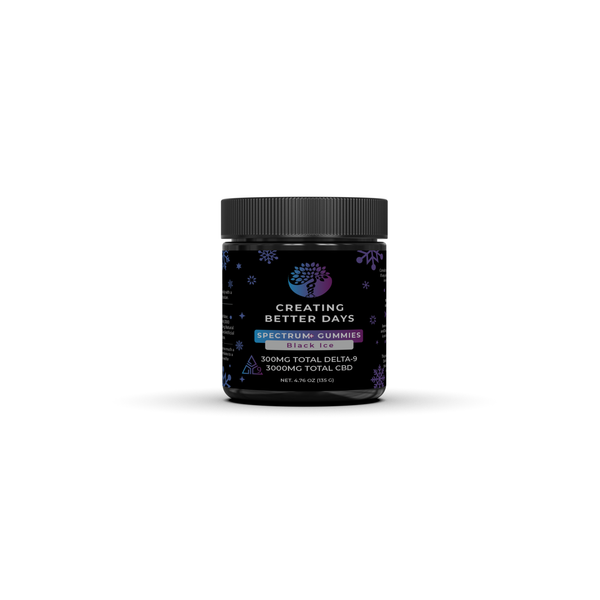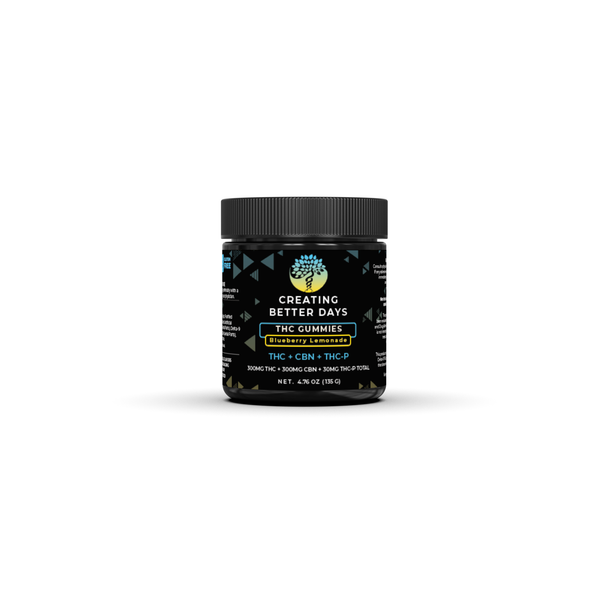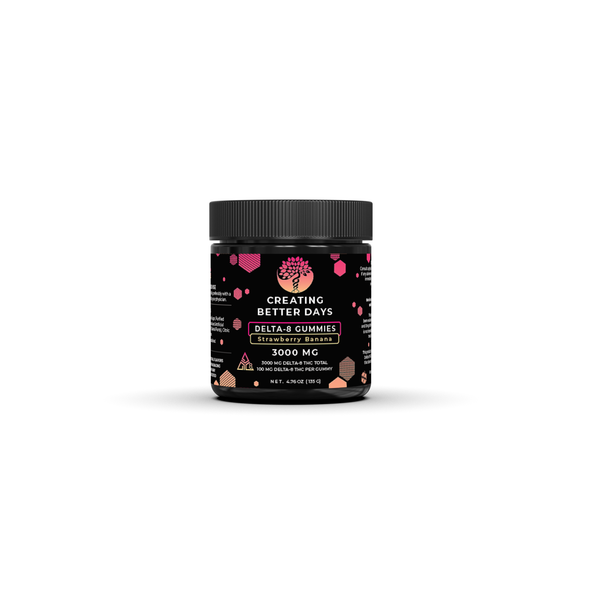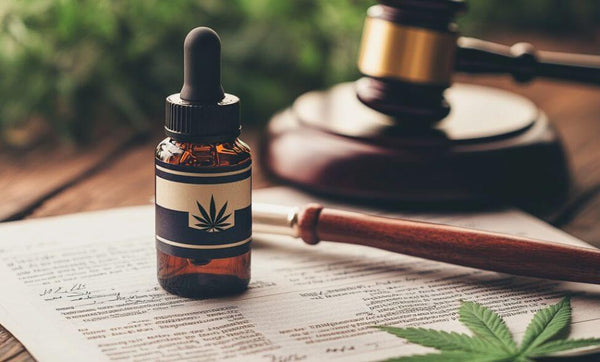
Is CBD Legal?
If you are concerned about whether Is CBD legal? don’t worry; it’s not a dumb question. The wide range of CBD products available in both online stores and physical shops is what keeps this legal issue at the forefront of everyone’s minds. At Creating Better Days, we simplify CBD's legal complexities with a clear and enjoyable educational approach. We’ll guide you through learning about CBD’s legal status today!
Key Takeaways
-
Federal legislation permits the commerce of CBD products derived from hemp that contain under 0.3% THC in the United States.
-
Local verification of CBD product legality is essential because each state has different regulatory requirements.
-
Legal compliance requires all CBD products, such as tinctures and topicals, to meet the specified THC content limitations. It is important that everyone understands and abides by these guidelines.
-
Trusted brands like Creating Better Days provide quality products with transparent lab testing.
-
Buying from trusted sources ensures you consistently receive safe and compliant CBD products, giving you peace of mind.
What is CBD?
Cannabidiol extracted from the cannabis plant lacks THC's psychoactive properties while being abundant in CBD. CBD stands as the second most popular cannabinoid after Delta. A wide range of exceptional cannabis products contains CBD, which consumers can find in fruity gummies, along with calming topical applications and easy-to-use tinctures. The primary source of CBD comes from hemp plants because they contain minimal THC levels, unlike marijuana. CBD works effectively with the endocannabinoid system (ECS) inside your body to manage several vital functions. CBD products have established themselves as a staple part of many daily routines throughout the years, though buyers must check local legal regulations before purchasing.
Does CBD Work?
Yes, but the potential effects of CBD can differ depending on the individual. We get this question a lot! We dedicate ourselves to providing factual information because numerous people want to learn about CBD integration into their daily lives. Creating Better Days makes no health claims or promises about CBD's abilities. We urge you to perform independent research and seek professional advice for any questions about CBD integration into your daily routine or lifestyle.
Have you ever heard of Epidiolex? Even though we don’t carry this product at Creating Better Days, its existence should give you a good idea if CBD works. The FDA has given the green light to this new medication, sparking considerable enthusiasm! This medication represents the first CBD-based treatment to demonstrate effectiveness for individuals with severe seizure disorders. The oral solution requires twice-daily dosing by patients, and clinical trials have provided positive feedback confirming its effectiveness. According to research conducted in 2021, patients experienced a median seizure reduction between 50% and 70%. Now that we've provided the information, we'll leave the decision about whether CBD is good or effective up to you.
Is CBD Safe?
In relation to a 2018 World Health Organization report, CBD is believed to have a favorable profile and is generally well-tolerated. Researchers found that CBD lacked addictive properties. Safety is always a top priority. Creating Better Days produces CBD products through reputable brands that focus on maintaining quality standards and transparent operations. Our customers now have access to our Certificates of Analysis (COAs), which detail the contents of all our products for easy exploration. It is important to consult your healthcare provider before trying CBD products so you can discuss any existing medications or health concerns you have. We place a strong emphasis on the well-being of our customers.
Is CBD Legal?
Absolutely, CBD is legal! However, the legality of CBD depends on multiple elements, including its origin and the location of its application. The federal government permits CBD extraction from hemp, provided that THC levels remain below 0.3%. The 2018 Farm Bill established federal permission for both hemp and its product derivatives. Federal law prohibits CBD extraction from marijuana but allows for exceptions when states have passed marijuana legalization laws.
Hold on—there’s more information! The federal government recognizes CBD as legal, but state governments determine their own rules for its application. CBD products receive full support in certain states, yet face stricter regulations in others. Before purchasing or using CBD products, review your state's regulations to ensure you follow them.
The Cannabis Plant and the Coverage of the US Farm Bill
The 2018 Farm Bill brought substantial modifications to the hemp and CBD industries, which started a fresh era of possibilities. In past classifications, hemp shared the same strict regulation status as marijuana. The Farm Bill allowed hemp production when THC levels are below 0.3% and enabled national sales of CBD products derived from hemp. These regulations create an important differentiation that opens up new business opportunities for both farmers and entrepreneurs.
States received authority from the Farm Bill to establish their own individual regulations. Hemp-derived CBD is still legal nationwide, but each state has the power to create its own rules regarding its production, sale, and use.
Is CBD Legal in All 50 States?
Understanding CBD legality requires defining "legal" within this specific context. The definition of "legal" CBD centers around the ability to sell it, purchase it, possess it, and use it in compliance with state regulations.
The federal government has authorized the use of CBD derived from hemp plants. CBD extracted from marijuana presents a more complicated situation. The legal status varies by state and depends on THC levels.
The Farm Bill establishes federal standards yet allows states to develop distinctive rules that lead to diverse state laws throughout the nation. CBD oil derived from hemp maintains its federal legality, but CBD products containing higher THC levels face additional restrictions. Our guide provides assistance in understanding state-by-state CBD regulations throughout the United States. Is CBD legal in all states?
Take a look at our table below to see all the legal states for CBD.
|
State |
CBD Legality |
Conditions |
|
Alabama |
Conditionally legal |
CBD oil with >0.3% THC is legal only with a medical license for specific conditions. |
|
Alaska |
Fully legal |
CBD oil is legal for medical and recreational use, with no THC restrictions. |
|
Arkansas |
Fully legal |
CBD oil is legal for both medical and recreational use. |
|
California |
Fully legal |
No restrictions on CBD oil for recreational or medicinal use. |
|
Colorado |
Fully legal |
Legal for both medical and recreational use. |
|
Connecticut |
Fully legal |
Available for medical and recreational use. |
|
Delaware |
Medically legal |
CBD oil >0.3% THC is available with a medical prescription. |
|
Florida |
Medically legal |
Requires a medical prescription for CBD oil exceeding 0.3% THC. |
|
Georgia |
Conditionally legal |
CBD oil up to 5% THC is permitted for qualifying medical conditions. |
|
Hawaii |
Medically legal |
Available with a prescription for medical use. |
|
Idaho |
Conditionally legal |
CBD oil with 0% THC is permitted; any THC content is illegal. |
|
Illinois |
Fully legal |
Available for purchase from both hemp and marijuana sources. |
|
Indiana |
Medically legal |
CBD oil with 0.3% THC or less is available; higher THC requires a medical prescription. |
|
Iowa |
Medically legal |
CBD oil is legal with up to 0.3% THC, with higher concentrations available for qualifying conditions. |
|
Kansas |
Conditionally legal |
Only CBD oil with 0% THC is legal. |
|
Kentucky |
Conditionally legal |
Only CBD oil with ≤0.3% THC is allowed. |
|
Louisiana |
Conditionally legal |
CBD oil with ≤0.3% THC is legal; higher THC is allowed for specific medical conditions. |
|
Maine |
Fully legal |
Legal for both medical and recreational use. |
|
Maryland |
Medically legal |
CBD oil >0.3% THC is available with a medical prescription. |
|
Massachusetts |
Fully legal |
Available for both medical and recreational use, with no THC restrictions. |
|
Michigan |
Fully legal |
Legal for medical and recreational use. |
|
Minnesota |
Medically legal |
High THC CBD oil is available with a medical prescription. |
|
Mississippi |
Conditionally legal |
CBD oil with ≤0.5% THC is legal for specific medical conditions. |
|
Missouri |
Medically legal |
CBD oil >0.3% THC requires a medical cannabis card. |
|
Montana |
Fully legal |
Both recreational and medical use are permitted. |
|
Nebraska |
Illegal |
Cannabis in any form, including CBD oil, is prohibited. |
|
Nevada |
Fully legal |
Both medical and recreational uses of CBD oil are permitted. |
|
New Hampshire |
Medically legal |
High THC CBD oil is accessible to eligible medical patients. |
|
New Jersey |
Fully legal |
CBD oil can be used both medicinally and recreationally. |
|
New Mexico |
Fully legal |
Both medical and recreational use are permitted. |
|
New York |
Fully legal |
CBD oil from both hemp and marijuana is legal for medical and recreational use. |
|
North Carolina |
Medically legal |
CBD oil with ≤0.9% THC is available for specific epilepsy conditions. |
|
North Dakota |
Medically legal |
High THC CBD oil is available with a medical prescription. |
|
Ohio |
Fully legal |
Both medical and recreational use are permitted. |
|
Oklahoma |
Conditionally legal |
Only CBD oil with ≤0.3% THC is legal. |
|
Oregon |
Fully legal |
Both recreational and medical use are permitted. |
|
Pennsylvania |
Fully legal |
Legal for both medical and recreational use, no THC restrictions. |
|
Rhode Island |
Medically legal |
CBD oil >0.3% THC requires a medical prescription. |
|
South Carolina |
Conditionally legal |
CBD oil with ≤0.9% THC is legal for specific medical conditions. |
|
South Dakota |
Conditionally legal |
Only hemp-derived CBD with ≤0.3% THC is legal. |
|
Tennessee |
Conditionally legal |
CBD oil with ≤0.9% THC is permissible for certain medical conditions. |
|
Texas |
Medically legal |
CBD oil with ≤0.3% THC is legal; higher concentrations are available for specific epilepsy conditions. |
|
Utah |
Medically legal |
CBD oil with more than 0.3% THC needs a medical cannabis card. |
|
Vermont |
Fully legal |
Both medical and recreational use are permitted. |
|
Virginia |
Medically legal |
High THC CBD oil is accessible to eligible medical patients. |
|
Washington |
Fully legal |
Legal for both medical and recreational use is CBD oil derived from hemp or marijuana. |
|
West Virginia |
Fully legal |
Both medical and recreational use are permitted. |
|
Wisconsin |
Medically legal |
CBD oil from marijuana is legal with a doctor’s certification. |
|
Wyoming |
Medically legal |
CBD oil with ≤0.3% THC is legal; higher THC is available with a prescription for epilepsy. |
|
Puerto Rico |
Medicinally legal |
CBD oil >0.3% THC is legal for medical use with a prescription; products ≤0.3% THC are available over the counter. |
|
U.S. Virgin Islands |
Medicinally legal |
CBD oil with >0.3% THC requires a prescription; products with ≤0.3% THC are available over the counter. |
What CBD Concentration Is Permitted Nationwide?
Did you know that the magic number for THC in CBD products is 0.3%? This little detail is important because federal regulations allow hemp-derived CBD to contain up to this amount to stay legal. If a product has more than 0.3% THC, it falls under the marijuana classification according to federal law, which comes with its own set of regulations. So, it's great to be informed about these limits!
States choose to apply different standards from the federal 0.3% THC rule. Idaho mandates that CBD products must not contain any THC, whereas other states permit higher THC levels for therapeutic purposes. When selecting CBD products, make sure to check lab reports (COAs) to verify THC content.
The Takeaway: Is CBD Legal?
So, is CBD legal? Absolutely! In the United States, you can freely explore hemp-derived CBD products that contain less than 0.3% THC! Remember that state regulations vary, so it's prudent to check. When you're ready to buy, opting for trusted brands like Creating Better Days really makes a difference. We are committed to quality, transparency, and compliance. This is why every product comes with a Certificate of Analysis, ensuring you receive precisely what you requested. If you're searching for CBD gummies, topicals, or CBD tinctures, shop with confidence, knowing our products meet the highest quality standards!
FAQs on CBD Legality in the U.S.
Which CBD Tinctures Contain the Highest THC Percentage Permissible in All 50 States?
No CBD tinctures contain THC levels above 0.3%, which are permitted in all 50 states. The federal limit is set at 0.3% THC, and some states require even lower levels.
Are CBD Topicals Legal in All States?
No, while most states allow hemp-derived CBD topicals with less than 0.3% THC, some states enforce stricter regulations or require 0% THC.
Are Hemp CBD Gummies Legal in All States?
No, hemp CBD gummies that contain up to 0.3% THC are legal at the federal level, but certain states may impose restrictions. It's important to verify your local regulations prior to making a purchase.
Do you have additional questions about CBD? Here are a few CBD-related articles:
To discover more, feel free to explore our blog section or reach out to us at (1800) 215-0223 if you have any questions! Our wonderful customer support team at Creating Better Days is always here to assist you.

